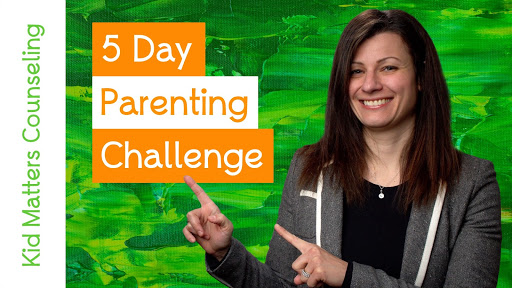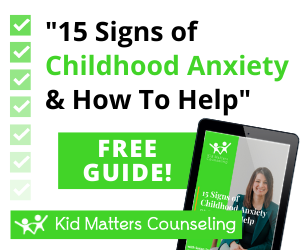Since the dawn of gaming, there has been a war waging between parents and video games. Every year a new hot game hits the market and breaks entertainment records and every year articles are published that blame games for real-life violence, behavioral issues, and anti-social patterns. Since there is so much noise out there about video games, we are going to tackle the world of video games in a three-part series. This is especially important as holiday breaks and vacations bring the kids home from school.
Before we dive into the nitty-gritty, it is important for parents to understand what the video game industry looks like. So to get an accurate snapshot, let’s look at the facts. In 2015 the global video game industry was worth $91.5 Billion with China being the largest source and the United States second. According to the Entertainment Software Association, the average video game player is 31 years old and 97% of children between the ages of 12 and 17 are video game players.
While most studies, arguments, and articles focus on the idea that violent video games lead to violent tendencies in children, we are going to go a different route. In this article, we are going to look at the psychological effects that video games are having on your child.
Let’s start with sleep.
We all know that sleep is crucial to both psychological and physical development in children. And sometimes, a good night’s sleep can be the difference between a typical day and an emotional break down in the grocery store. On average a 3-5-year-old child should be getting 13 hours of sleep each day (naps included). While a regular bedtime is often the easy solution, video gaming before bed could lead to tossing and turning throughout the night.
Psychologists at Flinders University in Australia conducted an experiment titled, ‘The Effect of Presleep Video-Game Playing on Adolescent Sleep.’ Their study, while far from exhaustive, resulted in an interesting discovery. The study used sleep-onset latency as their quantifiable standard. While playing video games for more than two hours resulted in higher sleep-onset latency, an hour or less of video games before bed resulted in no measurable difference in how quickly the teens fell asleep.
It is important to note, however, that this study used teenagers as their group of subjects. Teenagers have a much more developed sleep-cycle and can use less sleep than younger children.
As your young child grows into a teenager, their sleep habits change, and the required amount of sleep for healthy development shortens. An eighteen-year-old can function perfectly fine on as little as 7 hours of sleep a night. Emphasizing good sleep habits while your child is young is crucial to them developing healthy sleep habits in adulthood. According to a Harvard study, nearly 7 out of 10 adults experience problems that affect sleep quality.
The next psychological factor to consider is how gaming is affecting your child’s social development. Are video games causing antisocial behavior, or is it possible that gaming could help your child’s development?
Video games designed for multiplayer use require the player to engage with other players online to achieve a specific goal. To be successful, this requires clear communication, problem-solving, and coordinated execution as a team. While not all games are multiplayer games, there is some research that supports the benefits gaming can have on communication skills.
A study by Helena Cole, B.Sc. and Mark D. Griffiths, Ph.D. titled- ‘Social Interactions in Massively Multiplayer Online Role-Playing Gamers’ found some interesting things.
They found that eighty percent of the 912 participants preferred to play their games with friends and family. Their study also showed that 76.2% of the males and 74.7% of the females made good friends while gaming. This research suggests that adolescents can and do find friends through online video gaming.
Too much video gaming can and does have adverse effects. There is evidence that video game addiction can occur in children who are given unlimited access to video games around the clock. But, this is by no means the “norm.” Instead, it reflects the necessity of balance in entertainment. If you’re worried that your child may be spending too much time on their devices, our article about keeping screen time in check offers some practical advice for parents.
In our next article about video games, we will look at how games can physically affect your child.

Susan Stutzman
Owner | Child Therapist | LCPC, RPT
Parenting is hard! But you don’t have to do it alone. I work with children and parents to resolve emotional conflict, cultivate healing, and nurture hope.
Kid Matters Counseling has trained therapists ready to help both kids and parents walk through the tough moments in life.
End the frustration & the confusion and let's work together! SCHEDULE APPOINTMENTNew Clients Call: (855) 586-1802
Current Clients: (855) 543-7687
Ask Us Anything!
We help anxious kids and frustrated parents. We serve Hinsdale & the Western Suburbs of Chicago.
Made with ♥︎ in Hinsdale, Illinois for Chicago
Built By Brand Your Practice.
Kid Matters Counseling, P.C. DISCLAIMER: This website and blog are for informational, educational and general discussion purposes only. It is understood that no guarantee or warranty arises from the information provided, discussed or commented upon in this website and blog nor does it constitute legal or other professional advice on any subject matter. Access to this website and blog is voluntary and at the sole risk of the user. If you think that you have a medical emergency (including clinical), call your doctor or 911 immediately. A licensed medical professional should be consulted for diagnosis and treatment of any and all medical conditions. While the information contained within this website and blog is periodically updated, no guarantee is given that the information provided is correct, complete, and/or up-to-date. See our complete Privacy Policy and Terms of Service.



